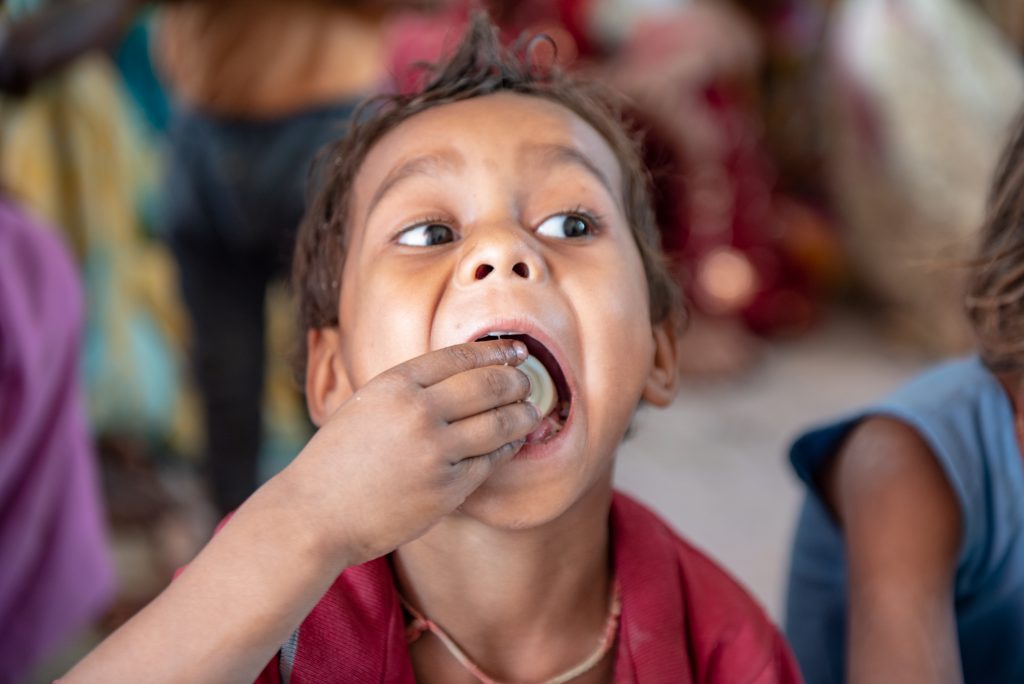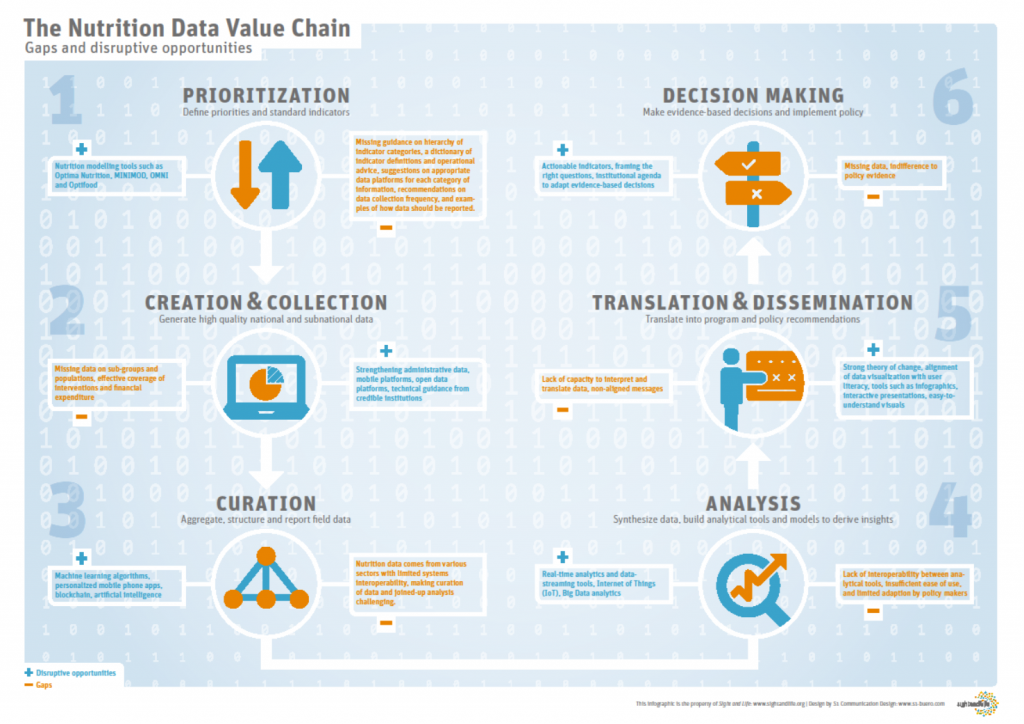Co-Author: Madhavika Bajoria and Rebecca Olson
4 min read
We live in a data-driven world. From social media and navigation maps to mobile health trackers and disaster prediction sensors, data has transformed our society in unprecedented ways. As momentum around leveraging data intensifies, the opportunities to spark change and drive development are endless.
But not all opportunities have equal leverage; data in nutrition lags behind. The 2018 Global Nutrition Report notes that “there are still vast gaps in the data available to help us better understand the nature and extent of malnutrition in all its forms. Many countries do not yet collect the necessary data to fully understand the burden of malnutrition, diet or indicators of progress.”
As we strive to end all forms of malnutrition by 2030, there is an urgent need to harness data to track progress, hold stakeholders accountable and foster rapid collaborations.
The following are four ways we can unleash the power of data to achieve better outcomes for nutrition:
- Understand the magnitude and scope of the issue(s) at hand
The world is facing a malnutrition crisis – 1 billion people are hungry, at least 3 billion don’t have sufficient nutrients and over 2.5 billion consume too much/the wrong food. Many countries are now facing the triple burden of undernutrition, overweight and obesity, and micronutrient deficiencies simultaneously. Generating and using nutrition data will be critical to forge country-level political commitments and drive forward action. - Track the right indicators
Selecting the right indicators to track progress can help us understand where we should start and measure our progress in what are often very complex topics. Low birth weight (< 2,500 grams at birth) is a critical marker for babies and also for women’s health and wellbeing. However, 47 countries (40 of which account for almost a quarter of all births worldwide) have insufficient data. Not surprisingly, there has also been minimal progress on alleviating low birth weight according to a new study from the London School of Hygiene & Tropical Medicine, WHO and UNICEF. Improving the collection and use of such data, therefore, is crucial in increasing accountability and improving programme decisions. - Employ robust data to inspire pledges and actions
High-quality data providing the right inputs on the right indicators at the right time can galvanize decision-makers. Chhattisgarh is a densely populated state in India and previously had the fourth worst proportion of stunted children. Within 10 years, however, they have outscored the Indian average. This stellar data point galvanized the Government of India into setting similar targets for the entire country as part of the National Nutrition Mission (2018). - Develop institutional capacity to drive and implement data-led decisions
In response to the United Nation’s call for low-income countries to improve evidence-based decision-making capabilities, multi-institutional teams across Africa developed their own National Evaluation Platforms (NEP). These platforms increase the generalizability of the tools and aggregate lessons. Their effectiveness grew when the Institute for International Programs at Johns Hopkins Bloomberg School of Public Health (IIP–JHU) provided capacity building tools, training and mentorship to ensure that the NEP was “country-led and country-owned.”
We now have more knowledge and data available than ever before, but we need a strong data value chain to inform decisions that address challenges around nutrition. To harness the power of data, read the Sight and Life’s magazine on Data in Nutrition and come hear the Sight and Life team present their findings at AVPN’s India Summit in Bengaluru on Nov 27th and 28th.



















